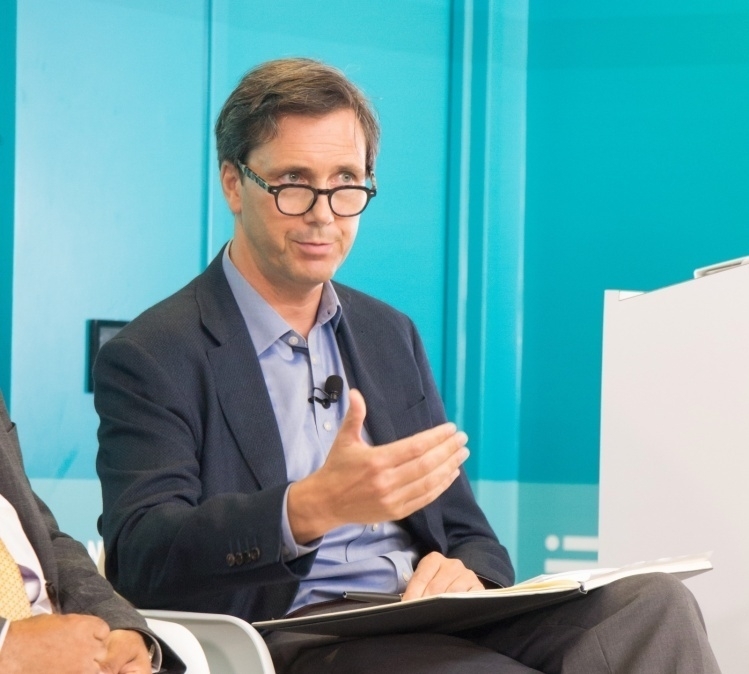Walking 1,000 miles across Europe
As I know from personal experience, walking a long way by yourself is hard work, both mentally and physically. As this article points out, doing so as a woman is even harder, so good on Lea Page for not only walking a thousand miles across Europe, but writing about how the biggest danger is… men.
When I walk alone, the consequences of every good or bad choice I make fall entirely on me: a responsibility and a freedom. As a woman and a mother, I rarely only have to consider what I want and need without having to first attend to other people. I know there are risks, but each time I come out of that “forest”, I feel stronger and more confident. Weighed against the simple daily rhythms of a long-distance walk and the joy and wonder I experience, risk – reasonable risk – becomes a small part of the equation, and one I am willing to accept.Source: I walked 1,000 miles alone through Europe – and learned that fear is the price of freedom | The Guardian[…]
One other time, while walking along a river just outside Colle di Val D’Elsa in Tuscany, I felt that familiar clench of panic. This river, a glacial robin’s-egg blue, meandered and tumbled gently. The gorge was not deep, but a lonely wooded path just outside a city struck me as the perfect place for an ambush. Clearly, men exist everywhere, so it made no sense to be frightened in that one particular place. I knew that, statistically, women are safer out in the world than they are at home, but in that moment, knowledge felt like thin protection. Unable to shake my feelings of dread, I called my husband, and we talked about inconsequential things so I could hear his sleepy voice and keep putting one foot in front of another.
And that’s what women are really talking about when we talk about being afraid. We are talking about men. But there is, I learned, a difference between being afraid and being unsafe.
On 'Executive Function Theft'
This post by Abigail Goben popped up in several places and is one of those that gives a name to someone most people will recognise. It’s an important differentiation on what is often called ‘care work’ as it highlights how something important is taken when repetitive, administrative work is outsourced to other humans.

Executive Function Theft (EFT) is the deliberate abdication of decision-making, tasks, and responsibilities that are perceived as administrative or repetitive, of lesser importance, or aren’t pleasant or shiny, to another person, with the result that the receiving person’s executive function becomes so exhausted that they are unable to participate in, contribute to, or enjoy higher level efforts.Source: Executive Function Theft | Hedgehog Librarian[…]
In the workplace, an example of EFT often plays out in the inequality of service labor, and I will specifically use academic service work here as it is my current workplace. Think of the people who end up with more than their share of administrative maintenance tasks — such as organizing get well cards, scheduling workshops, or taking notes. Consider the colleague who has a list of committee appointments a yard long and has just gotten a request to be on Another! Important! (is it?) Committee. These individuals may not be doing these tasks strictly because it is their job responsibility, but because they see a need to be filled or have been asked or tasked with taking on more service that they feel they cannot turn down. And notice how those tasks so often fall to the same group of people — especially when we get to any form of implementation or ongoing commitment rather than the “fun” ideation phase. One way to calculate these service loads would be to count the number of committees and task forces held by and expected of various individuals — who gets a pass and who gets penalized if they don’t say yes.
Quite often there’s a gendered component as to who is tasked with these additional service responsibilities — the office housekeeping as well as the care tasks of the workplace.
[…]
I will admit to never having been able to read Cal Newport’s Deep Work all the way through — I got too irritated — but I would point to his dismissive naming of the idea of “shallow work”, which he defines as logistical and often repetitive tasks, such as writing short emails. Newport recommends entirely stopping or poorly performing that work; I read this as encouraging readers to commit EFT against others around them. Too often the dump off of what are critical responsibilities is not to a specifically tasked and appreciated administrator but instead onto the junior, female, minoritized, non-tenure track, or precarious employees. It’s the maintenance work of keeping the workplace going and we do not appreciate the maintainers. Similarly thinking about EFT in the workplace, I was reminded of the guy who got famous with the Four Hour Workweek book and how we were all just supposed to outsource things to nameless underpaid gig workers. Notably, when looking for a summary of that book, I found an article by Cal Newport praising it.
Image: Uday Mittal
The problem with feminism is not that it has gone too far. It is that it has not gone far enough.
I listened to a podcast episode earlier this week entitled What the World of Psychology Gets Wrong About Men. After a few minutes, I considered turning it off, as I felt that the guest, Dr. John Barry, was about to stray into “men are under attack” territory.
But I kept listening, and I was wrong. It was a really balanced, well-structured conversation which pointed out how problematic the term “toxic masculinity” is when it’s applied to any behaviour we don’t like that’s exhibited by men. That’s not how the phrase originated.
This article is a review of Richard Reeves' new book. What struck me about it was the discussion of how young men’s veneration of hugely problematic figures such as Jordan Peterson, Andrew Tate, and Donald Trump is a symptom of male alienation. “Women’s lives have been recast. Men’s lives have not.”
In his new book, 'Of Boys and Men', Richard Reeves argues that the [crisis of masculinity] is structural. Society has undergone profound cultural and economic changes in the past few decades and many of them have left men—especially working-class men—disoriented and demoralized. As certain structural barriers that used to hinder women have been removed, women have proven their “natural advantage” in several areas, including in our colleges and universities. The structural disadvantages faced by men, meanwhile, have only become more entrenched during the same period. Several rounds of globalization, more outsourcing of traditionally “male” sectors like heavy industry, increasing automation, and greater workplace competition from women meant that, for many men, the economic picture has been getting bleaker by the year.Source: Have Men Become Culturally Redundant? | Commonweal MagazineAs a result, many men are struggling to fulfill their own outmoded expectations of what a man should be. “The problem with feminism, as a liberation movement, is not that it has ‘gone too far,’” Reeves writes. “It is that it has not gone far enough”—that is, it has not succeeded in replacing traditional models of masculinity with something more adequate to our current circumstances. The Western male is stuck in a culture of masculinity that is now desperately mismatched with his material reality. “Women’s lives have been recast,” Reeves writes. “Men’s lives have not.” Men have been consigned to “cultural redundancy.”
[…]
Addressing the kind of male disadvantages that Reeves catalogs does not mean ignoring or excusing inequalities that favor men over women. It’s possible, Reeves writes, to “hold two thoughts in our head at once.” Indeed, it’s urgent that we do so.
A candour affected is a dagger concealed

🤯 The Next Decade Could Be Even Worse
📝 White privilege - a guide for parents
👩💻 Working from home could lead to more prejudice, report warns
🎩 The radical aristocrat who put kindness on a scientific footing
Quotation-as-title by Marcus Aurelius. Image from top-linked post.


